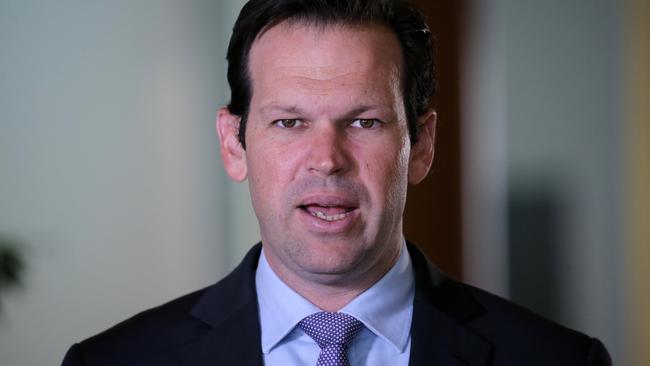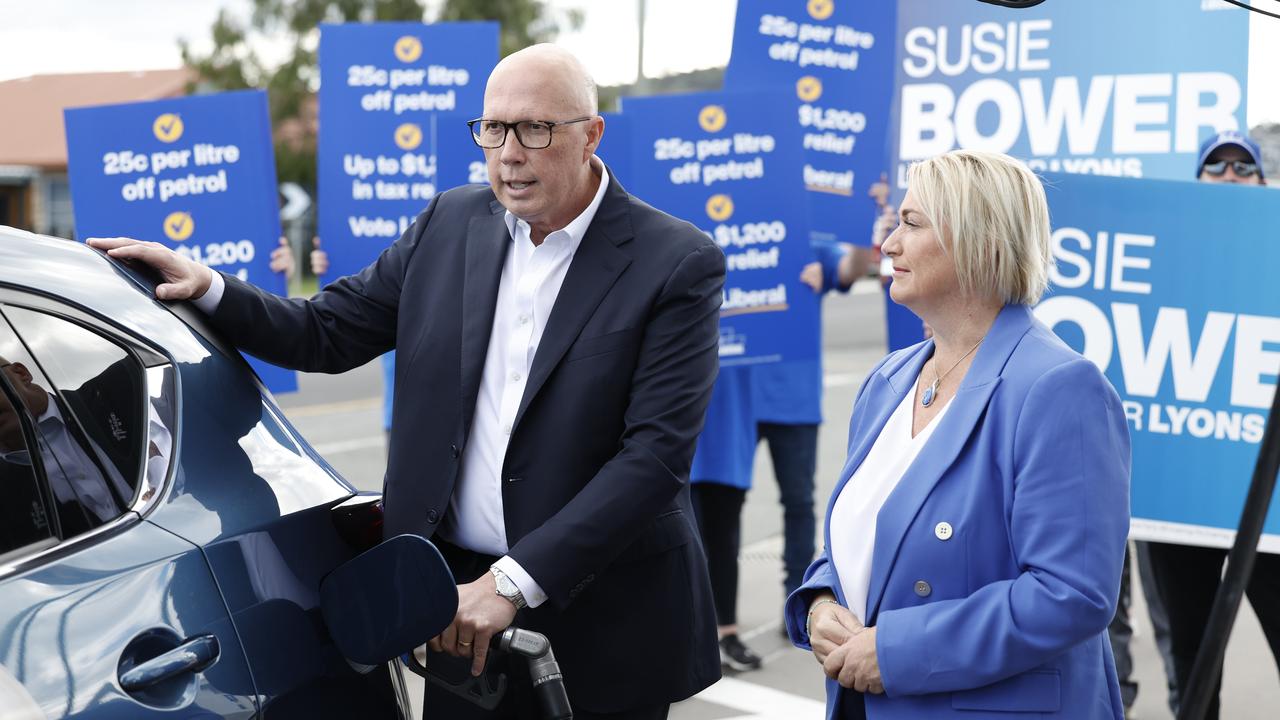Matthew Canavan rebukes business over carbon price policy
Resources Minister attacks major oil, gas companies for supporting carbon price.

Resources Minister Matthew Canavan has attacked major oil and gas companies for their ongoing support for a carbon price and urged them to rethink their position, saying they were out of step with the Australian people.
Senator Canavan, who was largely credited for the Coalition’s electoral success in coalmining seats in Queensland, said voters had rejected a carbon price at four elections and business needed to listen to the will of mainstream Australia.
He will today use a speech to the Australian Petroleum Production and Exploration Association conference to make the case for business to back down on a carbon price and also warn banks against opposing resources projects.
The anti-carbon price agenda will be outlined as newly elected Labor leader Anthony Albanese, who will convene his first caucus meeting at Parliament House today, faces pressure to overhaul the party’s climate change policies after the opposition lost seats to the Coalition in Queensland, NSW and Tasmania.
Labor has an emissions reduction target of 45 per cent by 2030 and a 50 per cent renewable energy target to be achieved over the same timeframe.
In an interview with The Australian ahead of his APPEA speech, Senator Canavan cautioned that social media commentary from “loud Australians” had skewed the debate and the volume needed to be turned down.
“This has led to unfortunate positions being taken by some large companies in the resources sector and the financial sector. Many in the resources sector have continued to call for a generic price on carbon,” he said.
“However, we’ve now had four elections in a row where the Australian people have rejected such a policy and perhaps it’s time we all listen to the democratic will of the Australian people and seek to tackle the issue of climate change through other means.
“On the financial side, we’ve seen major financial institutions decide to bar large sections of our own economy from receiving finance from our own banks. This has led to the perverse outcome where Australian projects and Australian jobs are having to resort to seek overseas finance.
“In light of the election, I would encourage the financial sector to review some of these policies and to ensure lending decisions are based on commercial and business considerations, not the influence of some loud and undemocratic voices within our community.”
A third key component of his speech will demand the resources sector align its corporate communications with the views and desires of its workforce.
Senator Canavan said he often received complaints from workers frustrated by mandatory gender diversity policies and “other political causes” imposed on them.
His climate rebuke will ratchet up tensions with some of Australia’s powerful resources producers, who are pressing for a carbon price amid pressure from their shareholders to boost their environmental credentials.
Speaking to The Australian last night, Woodside Petroleum chairman Richard Goyder said Australia needed a clear energy policy that included a plan to meet the nation’s Paris targets. “We’ve been very clear on what we think needs to happen,” he said, in reference to Woodside chief executive Peter Coleman’s repeated calls for a carbon price.
Energy major BP, which owns a stake in Woodside’s North West Shelf LNG plant, also said it was time for action on carbon pricing.
“Unfortunately today there is no carbon price. And unfortunately it is free to emit carbon dioxide into the atmosphere. It doesn’t feel right and it shouldn’t be like that. There needs to be a cost to change people’s behaviour,” BP’s global head of carbon management Gardiner Hill said on the sidelines of the APPEA oil and gas conference.
“We think a carbon price is an important way to tackle climate change and an economy-wide, market-driven price would be useful. It would change the mindset of how people use energy and it would change how people invest in technologies.”
Woodside and BP’s calls for action back up similar demands made by Shell, BHP and Rio Tinto, which argue that having such a mechanism would clarify the marginal cost of reducing emissions across business sectors.
The big commodity producers have also told the government that an investment pipeline worth billions could be put in peril if the Morrison government fails to consider sensible carbon initiatives with cross-party agreement on energy and climate policies.
Energy companies have been crying out for a clear policy to manage a transition to lower-emissions supply after the national energy guarantee was killed off before Malcolm Turnbull was ousted as prime minister.
The government took a $2 billion climate solutions fund — effectively a rebadged emissions reduction fund introduced when Tony Abbott was prime minister under his Direct Action policy — to the election, as well as a safeguard mechanism that requires Australia’s largest emitters to keep emissions within baseline levels. The Coalition has an emissions reduction target of 26-28 per cent on 2005 levels by 2030.
“I’m confident in the policies we took to the Australian people and I’m confident because of the experience we’ve had, despite scepticism,” Senator Canavan said.
Opposition environment spokesman Tony Burke has indicated Labor could adopt a direct action model to reduce emissions.
The Australian Banking Association’s spokesman said lending decisions were a matter for individual banks.



To join the conversation, please log in. Don't have an account? Register
Join the conversation, you are commenting as Logout